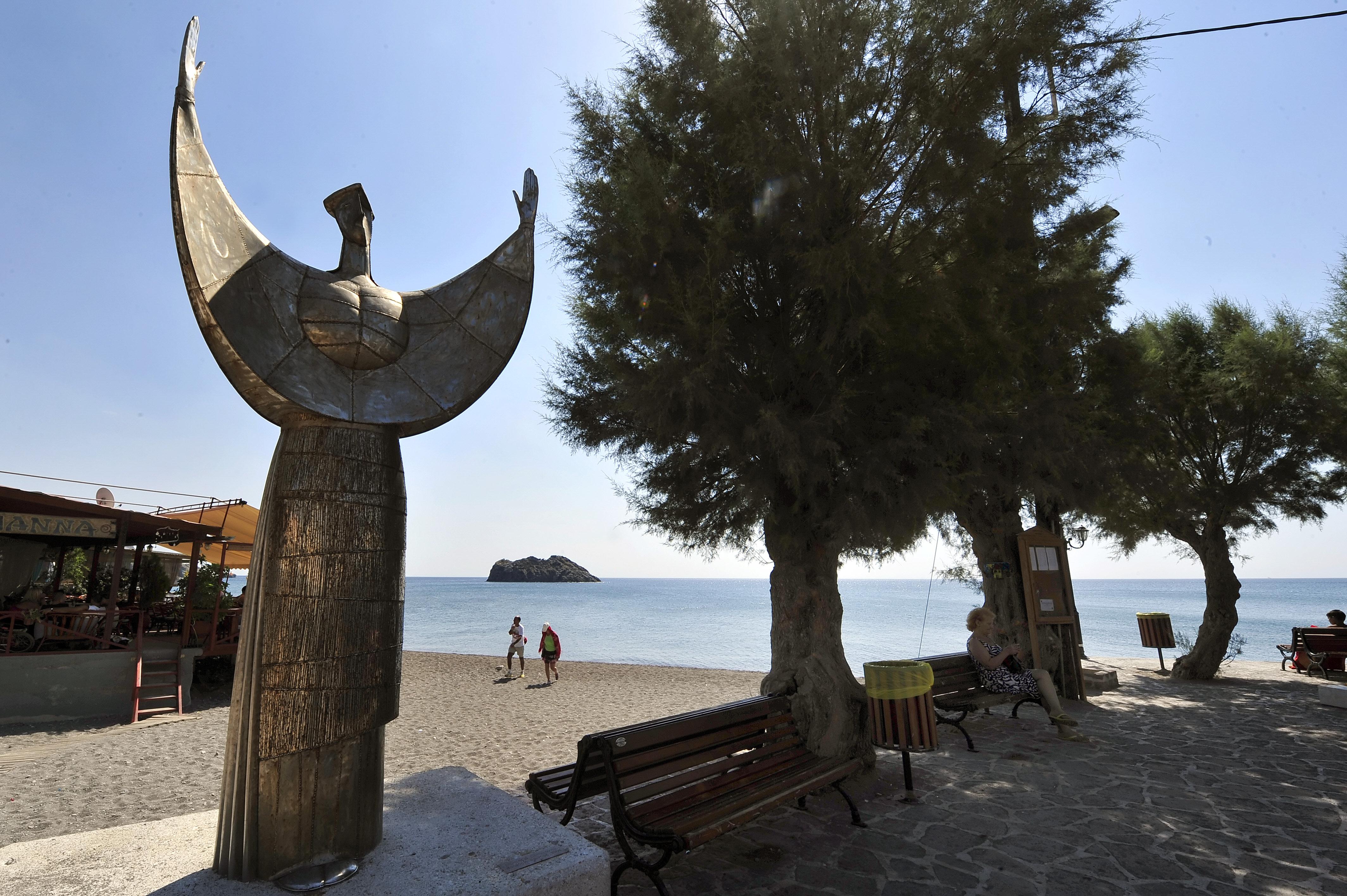Reading Sappho is radiant and frustrating, like being smiled upon by a goddess who is missing some teeth. Frustrating because her poems survive in quotations and fragments, snippets of often homoerotic desire coming down to us from seventh-century Greece. (Out of what is believed to be nine volumes of work, scholars have recovered only one complete Sappho lyric.) Radiant because, as the writer Kenneth Rexroth said of her, “Wherever enough words remain to form a coherent context, they give one another a unique luster, an effulgence found nowhere else. Presentational immediacy of the image, overwhelming urgency of personal involvement—in no other poet are these two prime factors of lyric poetry raised to so great a power.”
But while passion and a sense of elusiveness or loss seem important to our understanding of Sappho, they aren’t the full story. So it’s great news that two more of the poet’s verses have recently surfaced on a third-century scroll. As the Guardian reports, “the poems came to light when an anonymous private collector in London showed a piece of papyrus fragment to Dr Dirk Obbink, a papyrologist at Oxford University.” Obbink has described the meter, dialect, and themes as “indubitably” hers. The more intact lyric contains biographical tidbits, mentioning Sappho’s brothers Charaxus and Larichus; the second is a moan of unrequited love. Here they are, rendered in English by our crack ancient Greek expert, Thomas H. Buck, and then Sappho-ized by crack Sappho fan me.
Poem I
But always you babble that Charaxus is coming
With a full ship. These things, I suppose, Zeus knows
and all the other gods—but you
don’t need to understand them.
Just send me and instruct me
to pour out prayers to Queen Hera;
and beg that, steering his boat here
unharmed, Charaxus
finds us safe and sound. The rest,
let’s consign it all to the stars,
for fair winds suddenly appear
out of great gales.
Those whose fortune the Olympian King
turns back from sorrow—
They are happy
and shine with blessings.
And we, if Larichus ever lifts his head
to become a man,
from great heavy-heartedness we’d be
quick released.
Poem II (Fragment)
How could anyone not gorge always
Cyprian goddess, whomever you should love
and fervidly wish to call back to you?
You have …
Having summoned me idly you cut
longing …
